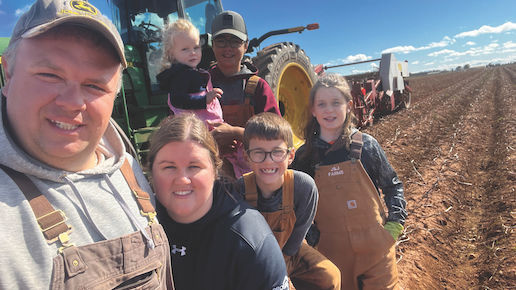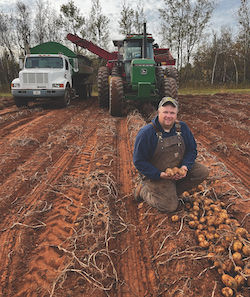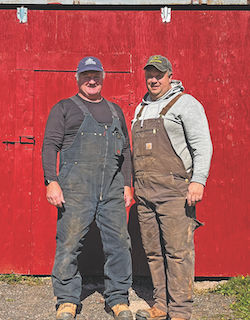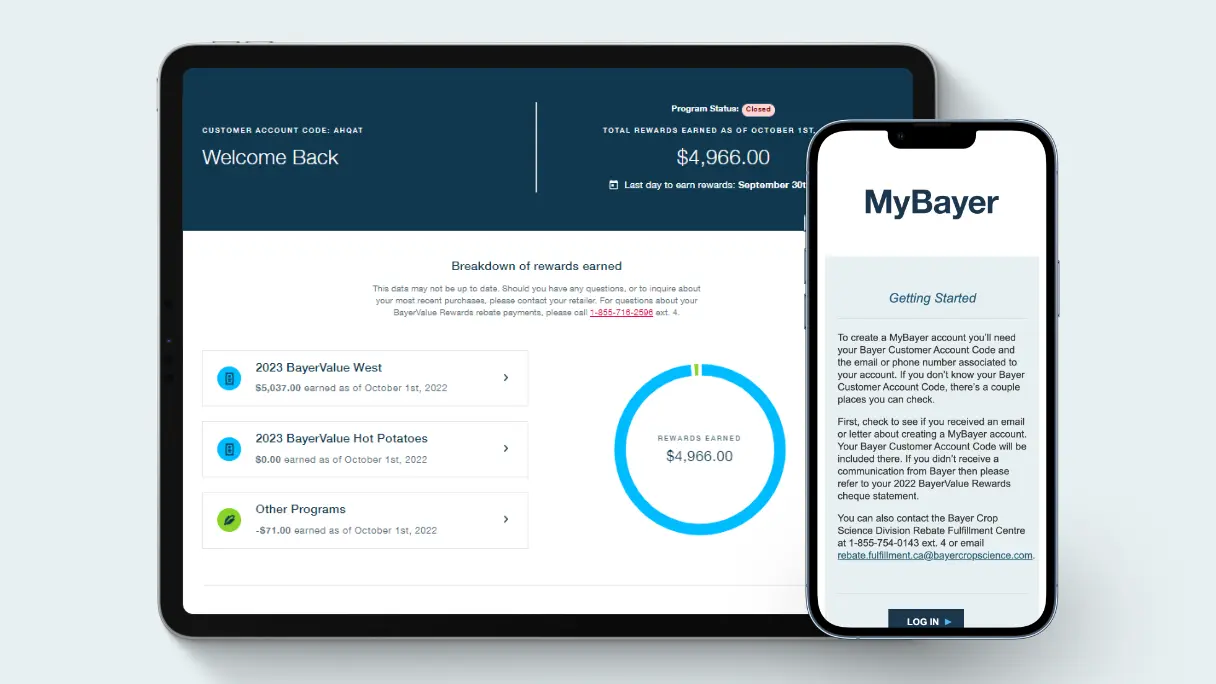6 READ-TIME
PEI potato farmer finds ways to boost profit without increasing acreage
December 13, 2023

By Treena Hein
Although he claims to be just another PEI potato farmer, Morgan Smallman definitely stands apart. With an approach that’s more about getting better than getting bigger, Smallman turned his attention to improving soil health to make a higher quality potato and added a new income stream, which combined, has helped secure the future of his family farm.
After earning an economics degree at Nova Scotia Agricultural College then working for a precision ag firm, Smallman talked to his father, Jeff, and uncle, Jason, in 2014 about how their sixth-generation operation, J&J Farms in Knutsford, PE, could financially sustain his new family.
Typically, that would mean expansion, but some lateral thinking on the part of Smallman and his family led to some smart ways to achieve their goal.
SIDE HUSTLE BECOMES A PROFIT CENTRE
MORE ACRES?
In 2017, Morgan, Jeff and Jason experimented with expanding their acreage. They had grown 400 acres of chip stock potatoes, and that year they added another 100 acres that they had available.
However, as Smallman explains, this was more trouble than it was worth, especially at harvest. With the equipment they had, harvest took that much longer. This brought stress as the potato variety they produce is sensitive to cold, and there were also some quality issues, mainly colour loss, in storage.
All in all, they decided that staying at 400 acres — which usually fills their two, two-million-pound bins over two days — was for the best.
IMPROVING SOIL TO IMPROVE QUALITY
However, it took some time to get good at growing sorghum. Smallman says that after some June frosts, they learned the hard way to plant the crop only in late June or even early July (into a cover crop that has kept the weeds down). “The other main thing we learned was how to cut it,” he says. “We were using a rotary mower that left large chunks that affected the alfalfa plant stand, so we bought a flailing mower and that does a great job.”
Both crops are mulched each year and tilled into the soil as green manure before the potato crop. Most tilling happens in the fall with some occurring in the spring if the fields are too wet.
Smallman says the practice has boosted soil organic matter, and in addition, the alfalfa’s deep tap root is really effective in keeping compaction at bay during the freeze/thaw cycle. “We use GPS and run on a bit of an angle with the mower and stay out of the potato tracks,” says Smallman. “It really helps alfalfa growth. I saw this in grape growing when I went to Niagara Falls through the Farm Management Council’s ‘Bridging the Gap’ program.”
And the potatoes? Yield has increased, yes, but quality has greatly increased, making storage easier and boosting profits.
“We ship our potatoes to New Brunswick and Nova Scotia and there are three or four other farms in the area that also do this. We were always looking for trucks, so we decided to take the plunge and buy one” MORGAN SMALLMAN
TAKING IT TO THE NEXT LEVEL
In 2023, Smallman plans to take the farm’s soil management to the next level with soil, water and topography (SWAT) mapping offered through Saskatchewan-based Croptimistic Technology. This allows Smallman to get an unprecedented look at his fields, making it much easier to execute variable rate application of various inputs.
“We have our own fertilizer and lime spreader and we’ll use the SWAT maps for that and for seeding as well,” says Smallman. “We’re also going to get a yield monitor on the harvester. Mapping is crucial. If we put more seed on the better land, less fertilizer where it’s not needed and so on, it all makes a difference. We expect the SWAT investment to provide a pretty quick return.”
Smallman, along with his wife Karissa, won the 2022 Outstanding Young Farmers Program award for the Atlantic region. While he says he feels like he’s just another potato farmer, he does acknowledge he’s ahead of the pack with soil management and is pleased he took the advice of OYF alumni in the region to apply to the program.
“It’s humbling and overwhelming to be a part of this family,” he says. “It does definitely feel like a family. It’s not just about farming. There are 42 alumni in the Atlantic region, and they have been very supportive. They really keep in touch and have opened up opportunities for us. It’s a network that’s really amazing.”


